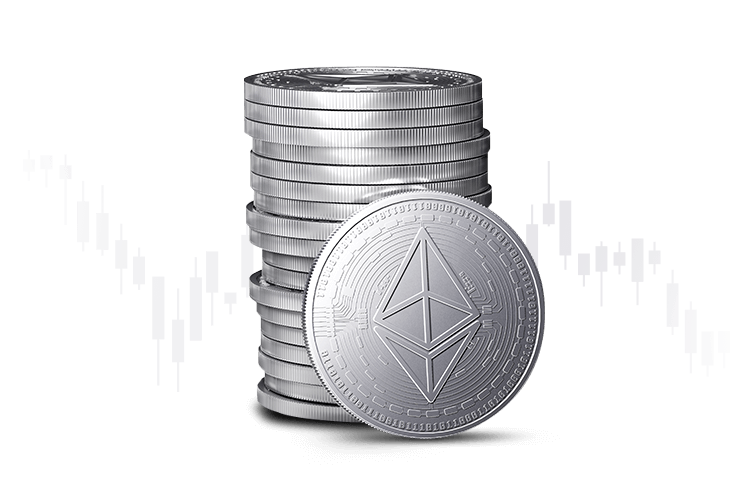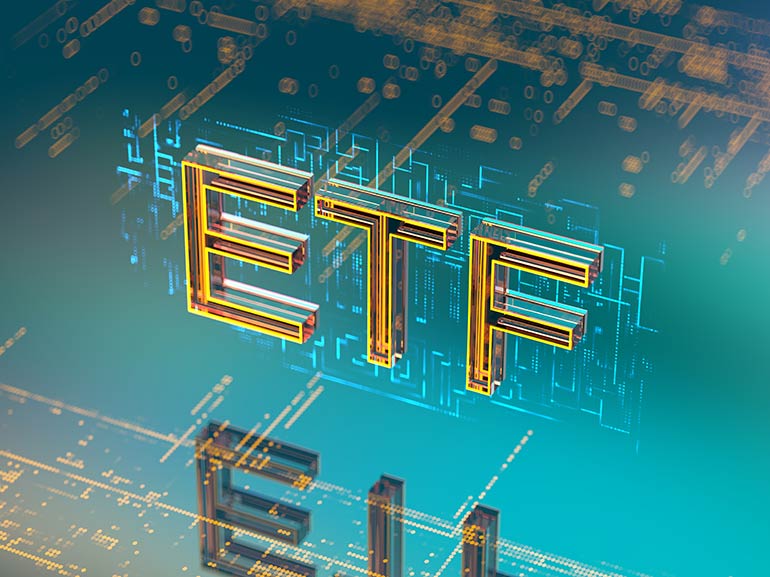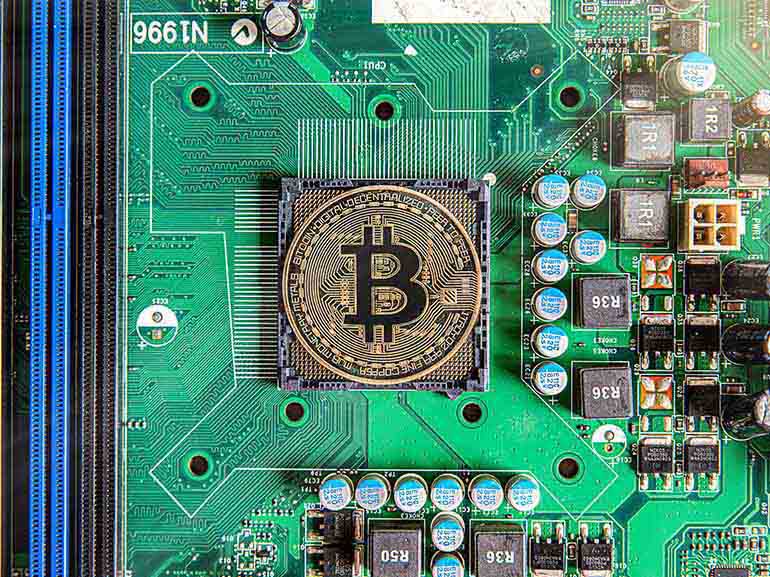Ethereum 101: What Is Ethereum & How Does It Work?
Date Modified: 2025/03/09
Ethereum is a user-run system that functions on thousands of independent computers around the globe to monitor and verify transactions. Each computer keeps a ledger and relies only on its history to ensure that a transaction is legitimate, without needing any central body, like a central bank or person.
In contrast to traditional online communications that go directly through a centralised platform or company, such as Meta (META), Microsoft (MSFT), or Apple (AAPL), blockchain takes a different approach by decentralising its system. It allows independent computers from around the globe to monitor network activity. These independent computers continually cross-check transactions known as 'blocks' and link them together in a chain of events, hence the name blockchain.
While there have been instances of decentralised platforms being manipulated, these occasions are rare because blockchain platforms have to all agree to any changes. This means that a group of compromised computers would trigger suspicion because a vast number of other computers would have conflicting registers.

TL;DR
- Ethereum is a decentralised, user-run system with thousands of independent computers verifying transactions and maintaining the blockchain ledger.
- Unlike centralised platforms (Meta, Microsoft, Apple), Ethereum operates on a decentralised system where independent computers cross-check transactions, ensuring legitimacy without a central authority.
- Ethereum enables digital applications (Dapps) that are powered by its cryptocurrency, Ether. These applications operate autonomously, without human intervention.
- Ethereum and Ether are often confused, but Ethereum refers to the platform, and Ether is the currency used for transactions on it.
- Ethereum uses a system called Gas to calculate transaction energy costs.
- Smart contracts automate processes, reducing the need for human involvement in transactions and applications.
How Does Ethereum Work?
Ethereum takes the blockchain technology used to manage Bitcoin and expands upon the idea to include digital applications.
Digital applications can be anything from rental to employment contracts but must use the currency of Ethereum, known as Ether. These applications do not rely on human engagement, rather, they are triggered by events and do not need human interventions.
For example, if a delivery is registered as delivered to a warehouse, payment is automatically transferred from one Ethereum wallet to another in Ether. This allows for quick payments while removing the need for a bookkeeper to confirm receipt, wait for paperwork, issue a payment, and then await a receipt.
Ethereum vs. Ether: What's the Difference?
Ether is a cryptocurrency and is used as the recognised tender for transactions on the Ethereum blockchain platform. Some people use the terms 'Ether' and 'Ethereum' interchangeably, even though the platform's cryptocurrency is more well-known amongst traders than its services.
Ethereum Glossary: Main Ethereum Terms
Here are some of the most important crypto terms you should know in regards to Ethereum:
- Blockchain: A decentralised system that is checked by a register, being able to confirm the rightful owner of a currency or event by reviewing the full history of a currency's or contract's life.
- Decentralised Applications (Dapps): These applications run independently and rely on a blockchain ledger.
- Decentralised: Without a central user or governing body. This creates transparency and uniformity across the network.
- Ether: The currency used for transactions on the Ethereum platform.
- Ethereum: A decentralised platform to run Smart Contracts and Dapps.
- Gas: A system that calculates the energy needed to complete a transaction based on computational complexity, storage demands, and bandwidth needs.
- Hard Fork: A significant upgrade or protocol change that is accepted unanimously across all of the platform's users. The split resembles a subway map where those who disagree with the new policies break off and terminate while most of the users continue.
- Miners: People who offer computing power to the network in exchange for currency.
- Mining*: The act of supporting the network through confirming transactions in exchange for currency.
- Permissioned: Transactions that are confirmed by a select group of users.
- Permissionless: Transactions are approved by any and all users.
- Smart contracts: Contracts with strictly defined parameters that are executed without needing human interaction.
- Nodes: Nodes are computers that are part of the blockchain networks. They store the record of transactions within the Ethereum blockchain and ensure that the blockchain's participants maintain the rules.
- Merge: An upgrade that turned Ethereum from PoW to PoS, improving the security and efficiency of the network. This was called Ethereum 2.0.
- Validator: An actor on Ethereum 2.0 who verifies and proposes new blocks on the network.
- Pectra: An Ethereum upgrade that took place in 2024 and improved the Ethereum network's infrastructure.
*It is important to note that while Ethereum was mineable in the past, it stopped being so in 2022.
Conclusion
Ethereum revolutionises digital transactions and applications by operating on a decentralised network, ensuring transparency, security, and automation. Through Ether, users can engage in transactions without the need for central authorities. The system runs on smart contracts that automatically execute without human intervention, making processes faster and more reliable. As Ethereum continues to evolve, its transition to Proof-of-Stake promises greater efficiency and sustainability, making it a key player in the future of decentralised digital platforms.
If Ethereum trading piques your interest, you can trade Ethereum CFDs with Plus500.
FAQs
Ethereum is a decentralised platform that runs smart contracts and decentralised applications (Dapps), where transactions are verified by independent computers, not a central authority.
Ethereum is the platform, and Ether is the cryptocurrency used for transactions on the Ethereum network.
Ethereum uses a blockchain to monitor and verify transactions. Each transaction is recorded globally across thousands of independent computers, ensuring transparency and security.
Smart contracts are digital agreements that automatically execute when predefined conditions are met without human intervention.
The Merge refers to Ethereum's upgrade from Proof-of-Work (PoW) to Proof-of-Stake (PoS), improving network security and efficiency.
Ethereum stopped using mining (PoW) in 2022 as part of the transition to PoS (Proof-of-Stake), where validators now verify transactions.
Related News & Market Insights
Get more from Plus500
Expand your knowledge
Learn insights through informative videos, webinars, articles, and guides with our comprehensive Trading Academy.
Explore our +Insights
Discover what’s trending in and outside of Plus500.
Stay up-to-date
Never miss a beat with the latest News & Markets Insights on major market events.


